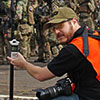OP: SOLOMONS PASS Questions
-

BentleyCntlGT - Specops

- Team: N/A
- Posts: 1717
- Age: 32
- Images: 6
- Joined: Wed Mar 29, 2006 4:15 pm
- Location: Honolulu, HI
Usally all the information needed wll be provided when they mention the OP or when you get there.
This is the first time they have had threads for both teams to discuss tactics and other things.
Probably because of the size of the game.
This is the first time they have had threads for both teams to discuss tactics and other things.
Probably because of the size of the game.
-

Ivan Daylovich™ - 1337

- Team: {FAG}
- Posts: 3365
- Age: 35
- Joined: Wed Jan 24, 2007 11:39 am
- Location: Poland
It's not the first time. We'll provide all the info we can in the forums, but there will still be a general brief at the game. We'll try to consolidate everything we can in one place and force you all to read it before the game 

-

Matt - 1337

- Team: APST
- Posts: 9645
- Age: 44
- Images: 12159
- Joined: Fri Nov 26, 2004 3:32 pm
- Location: Portland, OR
I just hope this game runs smoothly. Sounds like a management nightmare with so many people.
Glad I'm not running it!
Glad I'm not running it!

Bringing Down the Hammer.

The forever n00b! (Getting tacticool)
Newly self-proclaimed Mossberg 500 trigger group assembly expert

The forever n00b! (Getting tacticool)
Newly self-proclaimed Mossberg 500 trigger group assembly expert
-

Hoff - 1337

- Team: N/A
- Posts: 3174
- Age: 35
- Images: 6
- Joined: Sun May 15, 2005 11:18 pm
- Location: Vancouver, Washington
Everybody just needs to focus on having fun, that's the most important thing. Come out to the game, meet some folks, shoot some folks, be honorable and call your hits, win some prizes and go home happy!
-

Matt - 1337

- Team: APST
- Posts: 9645
- Age: 44
- Images: 12159
- Joined: Fri Nov 26, 2004 3:32 pm
- Location: Portland, OR
Dantes wrote:Everybody just needs to focus on having fun, that's the most important thing. Come out to the game, meet some folks, shoot some folks, be honorable and call your hits, win some prizes and go home happy!
Needs to be said again.
-

msawiel - Ranger

- Team: N/A
- Posts: 981
- Age: 44
- Images: 3
- Joined: Thu May 26, 2005 3:23 am
- Location: Portland, OR
KillerSlevin wrote:WHAT?!?!?!? that corn maze game rocked! except the part where a player "accidentally" forgot to chrono they're gun and it turn out to be 400fps CBQ!!!!!!
The player or 2, didn't accidently chrono thier guns.
All guns were required to be colour coded taged for either Woodland use or the CQB field. CQB's guns were 300 fps or under. Anything over 300fps was for Woodland field use only.
The gun in question had NO tag on it....and flat out, there was no excuse for that kind of thing to happen in the first place.
In the future, we are gonna to watch things a bit more closely.....or the least, everyone that got hit by the 'illeagal' gun can have a turn of lighting up the offending guy/gals/(s).

Last edited by RadioGod on Fri Feb 16, 2007 5:05 am, edited 1 time in total.
(""), =^oo^=
"You a photographer ??"
"...........No, I am a Combat Correspondent."
"Well, You seen much Combat ? "
"...........I've seen a little on TV. "
"You a photographer ??"
"...........No, I am a Combat Correspondent."
"Well, You seen much Combat ? "
"...........I've seen a little on TV. "
-

RadioGod - Grunt

- Team: N/A
- Posts: 72
- Age: 74
- Images: 0
- Joined: Wed Mar 02, 2005 3:02 am
- Location: Silverdale, Wa
BentleyCntlGT wrote:KillerSlevin wrote:we've been playing off and on with NATC for just over a year now and it's time to vranch out.
Do you know how to get ahold of NATC? Its kind of urgent also.
Try thier website.
http://www.natcairsoft.com
Leave a public message in thier forumes or you can try Psistalker's PM....he checks it about every 3 days or so.
(""), =^oo^=
"You a photographer ??"
"...........No, I am a Combat Correspondent."
"Well, You seen much Combat ? "
"...........I've seen a little on TV. "
"You a photographer ??"
"...........No, I am a Combat Correspondent."
"Well, You seen much Combat ? "
"...........I've seen a little on TV. "
-

RadioGod - Grunt

- Team: N/A
- Posts: 72
- Age: 74
- Images: 0
- Joined: Wed Mar 02, 2005 3:02 am
- Location: Silverdale, Wa
So yeah, a lot of the guys on the field are planning on using FRS/GMRS radios... just to let all of you know a license from the FCC is required to use a GMRS channel...
- Deliverator
- Specops

- Team: N/A
- Posts: 1048
- Age: 39
- Joined: Tue Apr 11, 2006 2:01 pm
- Location: Hillsboro, Oregon
Deliverator wrote:So yeah, a lot of the guys on the field are planning on using FRS/GMRS radios... just to let all of you know a license from the FCC is required to use a GMRS channel...
Thanks for the info. But not too many people are concerned with the FCC at this level.
GMRS or FRS is ok for this game.
ADMIN will be on Channel 8.0. So consider it "reserved"
-

ZEUS - Ranger

- Team: N/A
- Posts: 631
- Age: 57
- Images: 19
- Joined: Thu Feb 24, 2005 4:26 pm
- Location: Salem
Deliverator wrote:So yeah, a lot of the guys on the field are planning on using FRS/GMRS radios... just to let all of you know a license from the FCC is required to use a GMRS channel...
That is true.
To get one is super simple......print out a form or use thier online....send them money...they send you a License.
While i doulbt that the airsoft event will attract a van load of FCC, all it takes is for a few complants to be filed and then months later, nasty letter and/or fines arrive in the mail.
http://wireless.fcc.gov/services/index. ... ral_mobile
General Mobile Radio Service (GMRS)
The General Mobile Radio Service (GMRS) is a land-mobile radio service available for short-distance two-way communications to facilitate the activities of an adult individual and his or her immediate family members, including a spouse, children, parents, grandparents, aunts, uncles, nephews, nieces, and in-laws (47 CFR 95.179). Normally, as a GMRS system licensee, you and your family members would communicate among yourselves over the general area of your residence or during recreational group outings, such as camping or hiking.
The FCC grants five-year renewable licenses for GMRS Systems. The individual licensee is responsible for the proper operations of the licensed GMRS system at all times.
FRS/GMRS Dual Service Radios
Some manufacturers have received approval to market radios that are certified for use in both the Family Radio Service (FRS) and the General Mobile Radio Service (GMRS). Other manufacturers have received approval of their radios under the GMRS rules, but market them as FRS/GMRS radios on the basis that:
* Some channels are authorized to both services, or
* A user of the radio may communicate with stations in the other service.
Radios marketed as "FRS/GMRS" or "dual-service radios" are available from many manufacturers and many retail or discount stores. The manual that comes with the radio, or the label placed on it by the manufacturer, should indicate the service the unit is certified for. If you cannot determine what service the unit may be used in, contact the manufacturer.
If you operate a radio that has been approved exclusively under the rules that apply to FRS, you are not required to have a license. FRS radios have a maximum power of ½ watt (500 milliwatt) effective radiated power and integral (non-detachable) antennas. If you operate a radio under the rules that apply to GMRS, you must have a GMRS license. GMRS radios generally transmit at higher power levels (1 to 5 watts is typical) and may have detachable antennas.
Licensing -- Before any station transmits on any channel authorized in the GMRS from any point within or over the territorial limits of any area where the FCC regulates radio services, the responsible party must obtain a license. The FCC usually grants GMRS system licenses for a five-year term. To apply for a GMRS system license, you may file online through the Universal Licensing System (ULS), or file FCC Form 605 manually. New filers can learn more about ULS in its getting started tutorials. See Fee Requirements for FCC Form 605 (pdf) for current licensing fee information.
If you continue to operate your GMRS radios without a license you are technically in violation of the following Federal Communications Commission Rules &
Regulations (Title 47, Code of Federal Regulations [CFR] ). Each individual
operator of an unlicensed radio can be subject to FCC fines now as high as $11000 per day for each day the offense occurs:
§95.3 - License required
§95.119 - Station identification
Operation of radio transmitting apparatus without a valid radio station authorization constitutes
a violation of Section 301 of the Communications Act of 1934, as amended 47
U.S.C. § 301. Under the Communications Act, violators may be subject to
civil monetary penalties up to $11,000 and the equipment used is subject to seizure and forfeiture by court order. Unlicensed operators also could be subject to criminal fines of up to $100,000 and/or imprisonment for up to one year, or both, for a first time offense. Unlicensed radio operation may also subject the radio operator to serious penalties as provided in Section 501 of the Communications Act, as amended.
(""), =^oo^=
"You a photographer ??"
"...........No, I am a Combat Correspondent."
"Well, You seen much Combat ? "
"...........I've seen a little on TV. "
"You a photographer ??"
"...........No, I am a Combat Correspondent."
"Well, You seen much Combat ? "
"...........I've seen a little on TV. "
-

RadioGod - Grunt

- Team: N/A
- Posts: 72
- Age: 74
- Images: 0
- Joined: Wed Mar 02, 2005 3:02 am
- Location: Silverdale, Wa
Return to Pacific Northwest Events/Games
Who is online
Users browsing this forum: No registered users and 10 guests



